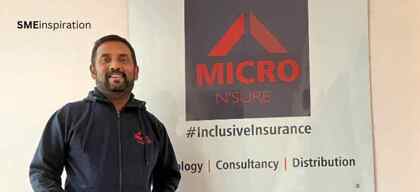Income tax benefits: Life insurance policy and medical insurance policy

Insurance
256 week ago — 8 min read
Background: Investing in life insurance and health insurance policy not only provides financial cover in the case of death or major sickness, but also offers certain tax benefits. In their previous article, Vakilsearch shared legal recourse when a borrower defaults on loan. In this article they explain how to claim income tax benefits of insurance policies.
If your family is dependent on your income, it’s always recommended to purchase a life insurance or health insurance policy to cover your life. The insurance policy will not make up for the emotional loss, but it will surely shield your family from financial burden. There are numerous insurance policies for different categories based on age group and gender. While you choose a plan, it is important to understand the taxability on insurance cover because you enjoy income tax benefits on your insurance policy.
Sections under which you can claim tax deduction
Under section 80C (along with deduction u/s 80CCC & 80CCD), a taxpayer can claim total deduction up to INR 1,50,000 for that financial year/assessment year.
Under Section 80D, a maximum of INR 25,000 is allowed in case of medical insurance premium payment or payment made for a preventive health check-up. This is for the benefit of the assessee or his/her spouse or his/her dependent children.
Additional deduction of INR 25,000 is available if the medical insurance taken in the name of a senior citizen.
On e-filing income tax returns, the taxable income is arrived only after making all deductions under section 80C to 80U from Gross Total Income (GTI).
Taxable Income = Gross Total Income – Tax deduction u/s 80C to 80U
Important things to know before claiming deductions under section 80C to 80U
1. Under chapter VIA (u/s 80C to 80U), no deductions shall be allowed from the following income:
- Long term capital gains
- Short term capital gains covered under section 111A
- Money from winning lotteries, horse race, etc., (Section 115BB)
- Income covered under sections 115A, 115AB, 115AC, 115AD, 115BBA and 115D.
2. The total deduction claimed cannot exceed the Gross Taxable Income (GTI) that year.
3. Under section Section 80C, an individual or Hindu Undivided Family (HUF) can claim tax deductions on the following
- Life Insurance Premiums
- Investment in Public Provident Funds
- Investment in National Savings Certificate (NSC)
- Tuition fees of any of his/her two children
- Repayment of principal amount on Home loan
- Senior Citizens Saving Scheme
- Post Office Time Deposit Scheme
Who can avail of tax deductions under section 80C?
In the case of an individual, the tax deduction is available on the insurance policy taken in the name of a taxpayer or his/her spouse or his/her children.
In the case of HUF, the tax deduction is available on the insurance policy taken in the name of any of the family members in the HUF.
No deduction can be claimed in the name of any person other than the persons mentioned above.
What is the minimum holding period to claim deduction?
There are minimum holding period for certain investments and deposits to claim deductions u/s 80C
- For ULIP of UTI or LIC – Minimum holding period of 5 years.
- Life Insurance Policy – Minimum holding period of 2 years
- Senior Citizens Saving Scheme or Post Office Time Deposit – Minimum holdings period of 5 years
Note: In case of withdrawal of the Senior Citizens Saving Scheme or Post Office Time Deposit before the completion of the minimum holding period of 5 years, the amount withdrawn will be taxed in that year.
What are the restrictions?
There are certain restrictions on tax deductions with respect to the capital sum assured based on the date of issue of policy.
- 20% tax deduction on policies issued on or before 31 March 2012.
- 10% tax deduction on policies issued on or after 01 April 2012.
- 15% tax deduction on policies taken on or after 01 April 2013. It is in the name of any person suffering from a disability or severe disability. It is referred to as Section 80U or suffering from disease as given in Section 80DDB.
Under Section 80C, a taxpayer makes a deduction on any contribution. It can be towards statutory provident fund or recognised PF or superannuation fund or public provident fund (PPF).
Important things to know before claiming deductions under section 80D
U/s 80D, an individual or a HUF can claim deductions on the following things:
- The medical insurance premium paid by the taxpayer (an individual or a HUF) by any mode other than cash.
- Any contributions made by the taxpayer (an individual) to the Central Government Health Scheme (CGHS) or any such scheme notified by the central government.
- A sum paid by the taxpayer (an individual) on the account of preventive health check-up.
- Medical expenditure incurred by the assessee, being an individual/HUF on the health of a senior citizen person provided that no amount has been paid to effect or to keep in force an insurance on the health of such person.
Who can avail tax deductions under section 80D?
In case of an individual, the income tax deduction is available on the medical insurance policy. But it has to be taken in the name of a taxpayer or his/her spouse or his/her dependent children, his/her parents.
In case of HUF, the tax deduction is available on the medical insurance policy in the name of any of the family members in the HUF.
For medical expenditure, the deduction is allowed only when it is incurred on the health of senior citizens.
'Senior citizen' is a person who is a resident in India at the age of sixty or above. No deduction can be claimed in the name of any person other than the persons mentioned above.
Limitations on the amount of deduction under Section 80D
For an Individual
- Maximum limit up to INR 25,000 – In case of medical insurance premium payment or payment made for a preventive health check-up for the benefit of the assessee or his/her spouse or his/her dependent children.
- The maximum limit up to INR 25,000 – In case of medical insurance premium payment or payment made for a preventive health check-up for the benefit of parents of the assessee.
- Maximum limit up to INR 25,000 – Any monetary contribution made towards the Central Government Health Scheme or any scheme notified by the Central government for the benefit of the assessee, his/her spouse, dependent children.
- INR 50,000 in aggregate in respect of medical expenditure incurred on the health of assessee, himself, his/her spouse or dependent children or parents. [This deduction is available if the amount is paid for the benefit of a senior citizen and no amount has been paid to effect or to keep in force an insurance on the health of such person.]
For a Hindu Undivided Family (HUF)
The total tax deduction cannot exceed INR 25,000, in aggregate, in respect of medical insurance premium payment made on the health of any member of HUF.
The above-mentioned limit will be increased to INR 50,000 in the following conditions:
- When the medical insurance premium paid in respect of any senior citizens.
- When medical expenditure is incurred on the health of a senior citizen person if no amount is paid in respect of the health insurance of such person.
Conclusion
Tax deductions are not only available for investments but also for specified expenditures incurred by the taxpayers. In order to claim tax benefits, do mention the total deductible amount in the relevant column while filing ITR.
Also read: Uberrimae Fides and the moment of truth
Image source: shutterstock.com
To explore business opportunities, link with us by clicking on the 'Connect' button on our eBiz Card.
Disclaimer: The views and opinions expressed in this article are those of the author and do not necessarily reflect the views, official policy or position of GlobalLinker.
Posted by
Vakilsearch StaffGreetings! We would love to work with you and your company. We look forward to connecting with business houses and MSME's.
View Vakilsearch 's profile
SME Inspirations
Other articles written by Vakilsearch Staff
Know About the 4 Types of Partnership Firms
22 week ago
Most read this week

















Comments
Please login or Register to join the discussion